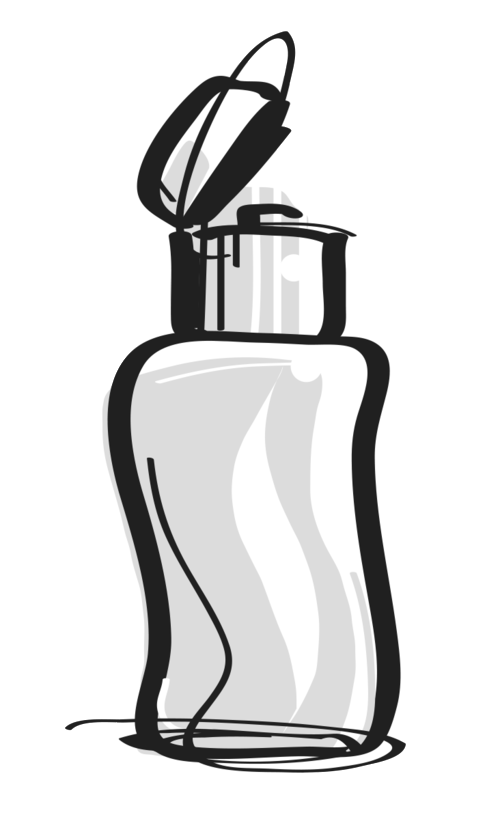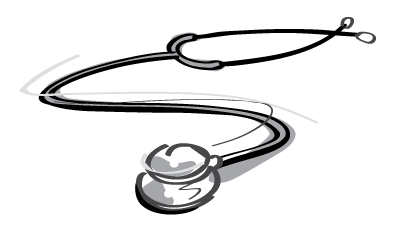Sexually
Transmitted
Infections
Sexually Transmitted Infections (STIs) are a group of infections passed from one person to another during sex or intimate contact.


Masturbation is a very safe way to receive sexual pleasure. There is no risk of STBBIs being passed when you're touching yourself or using sex toys alone.
Holding hands or cuddling with clothes on is a very safe way to be intimate with your partner(s).
TO HAVE SAFER SEX: Avoid kissing if you or your partner(s) have sores on your lips or in your mouth.
TO HAVE SAFER SEX: Use a condom or rubber glove on your hand when fingering your partner(s), or use an internal condom when being fingered.
There is no risk of STI transmission if you are using sex toys alone. The risk increases when sex toys are shared between partners.
TO HAVE SAFER SEX: Wash sex toys well with soap and water after each use. Use a new condom or oral dam on sex toys for each partner.
TO HAVE SAFER SEX: Use a barrier (like an oral dam) on your vagina.
TO HAVE SAFER SEX: Use a barrier (like an oral dam) on your partner's vagina.
TO HAVE SAFER SEX: Put a condom on your penis
TO HAVE SAFER SEX: Put a condom on your partner's penis
TO HAVE SAFER SEX: Use a barrier (like an oral dam) on the anus.
TO HAVE SAFER SEX: Put a condom on the penis or an internal condom inside the vagina
TO HAVE SAFER SEX: Put a condom on the penis or an internal condom inside the anus
To get an STI, you or your partner(s) need to have one. Some people get symptoms from an STI, but lots don’t. The only way to know for sure if you or your partner(s) have an STI is to get tested.
STIs are passed more easily with some types of sex. When you know the chance of getting or passing an STI through different types of sex, you can decide what kinds of sex you and your partner(s) are comfortable with.
Most STIs are passed between sexual partners during oral, vaginal and anal sex. Some STIs are passed during close intimate contact through sexual fluids or sores. If you use a condom or other barrier device each time you have sex, the risk of getting and STI is reduced.

Every Sexually Transmitted Infection (STI) has specific symptoms, but you can also have an STI with no symptoms at all. Even when there are no symptoms, an STI can still be passed from one person to another.
Some STIs can cause serious health problems like pelvic
inflammatory disease (PID) & epididymitis if left untreated.
If you have any of these symptoms, you could have an STI:
Get tested before you have sex with a new partner, whenever you or your partner(s) have an STI symptom or yearly if you haven’t had an STI test in the last 12 months.
Use condoms every time you have vaginal or anal sex, and a condom or other barrier device every time you have oral sex.
Make sure you’re up to date on your immunizations. Some viruses (like Hepatitis A & B and HPV) can be prevented with vaccines.
Talk with your partner(s) about your STI status, the types of sex you want to have, and how you can protect one another.

Water based lubes are safe to use with toys, condoms, and are safe for internal (oral, anal, vaginal) use. Some water based lubes contain glycerin, which can increase the chance of yeast infections for some people.
Silicone lubes are not water soluble and should not be used with silicone toys. Silicone lubes don’t breed bacteria or yeast, and they are safe to use with condoms.
Oil based lubricants are not recommended for internal use because they can breed yeast and bacteria. Oil based lubes also break down condoms (very quickly) and damage rubber toys. Oil based lubes should only be used externally, for masturbation or massage.
you'll give a urine sample and your health care provider will swab your mouth and anus if you have had oral or anal sex.
you’ll give a small blood sample.
your health care provider will swab the sore.

get tested and hold off on having sex with anyone until you get your results.

for a requisition for STI testing, then take that requisition to give your sample(s) at a lab.

to see a nurse and have STI testing done.

to test when and where it works for you. Self-test kits include a step by step instruction guide.
Every STI has a unique window period. This is the time between exposure to an STI and when that STI will produce a positive test result.
If your STI test is negative, ask your health care provider to be re-tested after the window period.
They will also tell you what kind of treatment you need and how to access it. Hold off on having sex for 7 days after treatment for Chlamydia and Gonorrhea or 14 days after treatment for Syphilis to give the medication time to work and prevent spreading the STI to your partner(s). Most STIs are completely curable with antibiotics and the ones that can’t be cured can be managed with medication.
All positive STI results are reported to Saskatchewan Health. Your health care provider or a public health nurse may ask about your sexual partners so that they can be tested and treated if needed. Partner notification is completely confidential and there are several ways you can let your partner(s) know.
Once the STI is treated, you’ll still need to have safe sex in the future. You can get the same STI again if you’re exposed to it again.
If you’ve just been diagnosed, or if you’ve been living with it for a while, you’re not alone. There are great local resources to help you live a healthy life with non-curable STIs.
If you or your partner(s) are living with an STI (like HIV, hepatitis or herpes), it’s important to know your risks and how to have safer sex. If you’ve just been diagnosed, or if you’ve been living with it for a while, you’re not alone. There are great local resources to help you live a healthy life with non-curable STIs like HIV, hepatitis and herpes.
PrEP is medication taken daily by people at very high risk for HIV to lower the chance of getting infected with HIV. Your risk of getting HIV from sex can be even lower if along with PrEP, you use condoms every time.


